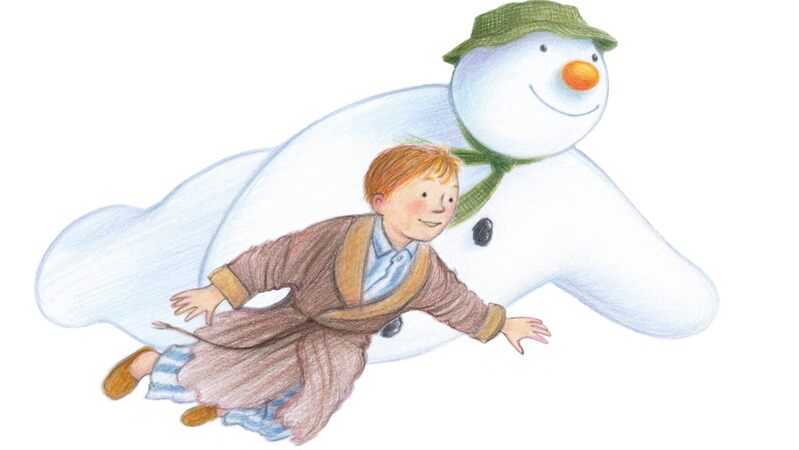You are viewing your 1 free article this month. Login to read more articles.
Poor pay perpetuates creative block for low-socioeconomic writers
I think the low point came when we finally had to turn to Wonga. Or it might have been when my wife and I smashed up an old kitchen chair to put in the log burner. We made light of being clichéd impoverished writers, but the ugly reality was that we couldn’t afford to refill our oil tank at winter prices and weren’t able to heat our poorly insulated rented house. It was an extreme example of what it means to be a working class writer. You have to make choices. You can choose to meet the deadline for your poorly paid writing gig, or you can let your clients down and work more hours at the bar job that enables you to heat your house. Rightly or wrongly, my wife and I have always chosen to meet our deadlines. And burn furniture whenever necessary.
I’m an author and screenwriter from a working class family. I got my first paid job when I was twelve, cleaning the local bookmakers with my mum after school, and haven’t stopped working since. I worked weekends and holidays throughout high school, and got jobs during the holidays while at university. I would have worked more, but the university I attended had quaint prohibitions on paid employment during term.
I’d always dreamed of writing professionally, but didn’t think it was a realistic option given my background. The British publishing industry has historically been the preserve of the upper and middle classes. People with money were the only ones who could afford the financial uncertainty and lean years that are part of the book business whether you’re an author or a publisher. That financial independence created a disconnect from the marketplace. Authors wrote books they found interesting and publishers could put them out because they considered the works "important" – and if they didn’t sell, it was the public’s fault for having poor taste rather than a failure of the author or publisher to gauge what people wanted to read.
This commercial disconnect led to an intellectual one and spawned the tradition of the literary establishment looking down its nose at the book buying masses and popular authors who sell by the bucket load. That disconnect still exists today in the form of snobbishness which is reflected in the disproportionate amount of review coverage, prizes and industry attention given to worthy novels that hardly sell. The message from the literary establishment is, ‘We don’t care what you’re buying, we’ll tell you what’s important.’
In a free market the establishment can’t control what people buy, but it can decide what it celebrates as worthy. I can’t count the number of times I’ve heard some of the world’s best-selling authors being disparaged because they supposedly can’t write. This will come as news to the millions of readers who devour these authors’ books.
Imagine an alternate reality in which Radio 1 refused to recognise the commercial charts and played opera most of the time. Imagine a world where the Brit awards only feted classical artists, and critics focused on choral music. What would this do to people’s perception of the industry? A budding musician might say, ‘I rate Stormzy and want to make his kind of music, but the industry doesn’t think he’s important, so it probably doesn’t want people like me.’
The literary establishment’s focus on what is "worthy" discourages anyone who doesn’t connect with that kind of work, and when people see review pages and awards ceremonies packed with books they don’t relate to, they are more likely to think publishing isn’t for them. Failure to celebrate what is popular and commercially successful is a legacy of the publishing industry’s class prejudice. It is elitist and discourages future generations of talent.
Like me, most of my childhood friends are second generation immigrants. None of them considered going into the creative industries. They’d experienced enough poverty to know its harsh reality, so they became accountants, lawyers, doctors, management consultants and bankers. If I hadn’t reassessed my priorities in light of my father’s sudden death, I’d probably still be in their ranks. Few people who’ve grown up without money willingly choose a path that involves uncertainty and hardship.
Publishing doesn’t just stack the deck against aspiring authors from working class or minority backgrounds, it also discourages people from those backgrounds getting into the industry as editors, publicists or marketers. Who can afford to do unpaid internships in London? Who can afford the low starting salaries?
Even when one makes headway in the industry, the class issue lingers. Having seen some of the results of The Bookseller’s survey on class, it’s disappointing to learn that almost half of working class people are able to cite specific instances of prejudice or discrimination because of their background. As troubling as that is, being working class in the publishing industry has many less obvious consequences. People from working class backgrounds often aren’t in a position to hold out for the best contract terms, and I suspect that part of the gender pay imbalance within the industry is actually rooted in a class imbalance. People from wealthy backgrounds tend to overestimate their value and can afford to negotiate, while those from poorer backgrounds tend to undervalue themselves and need cash to keep the wheels from falling off.
Wage equality can be addressed as part of corporate policy, and modern technology means publishers could employ a greater number of remote workers, or perhaps move departments or imprints out of London, reducing employee living costs and making the industry more accessible.
If the publishing industry wants more working class authors, I believe it needs to encourage the literary establishment to celebrate commercial success. It needs to revel in the tremendous achievements of best-selling authors and provide role models that future generations can identify with and aspire to. If it wants to better represent Britain’s multi-cultural society, it needs to entice talented people by showing there is a path to a sustainable career.
The TV industry is a good example of a creative business that does exactly that. It is extremely demanding and very competitive, but there is a clear path to a lucrative career, and by celebrating what’s popular and being motivated by commercial considerations companies have the funds to nurture new talent and reward people for long-term success. Given the current surfeit of high quality TV drama, it’s hard to argue that a focus on commerce does anything to harm the artistic integrity of material. If anything, the quality of TV has risen as commercial competition has increased. Executives can’t indulge their interests and have to deliver programming that appeals to a large audience.
I’m one of the founders of Capital Crime, a new festival that celebrates all things crime and thriller. When we were programming the festival, one working class author told us he was shocked to get an invitation to appear. His publisher had said he would never be invited to a British literary festival because he writes so-called ‘airport thrillers’. This author is a Sunday Times bestseller with many novels to his name. It was disheartening to hear that someone who’d achieved such success had resigned himself to never being recognised by his own industry. We were happy to be part of a change that needs to happen if publishing is to evolve and thrive.
In addition to our inclusive approach to programming the festival, we are trying to do our bit to attract new talent to the industry and have launched a social outreach initiative with ten London state schools. Our first event will see a diverse group of 20 sixth-form students and their teachers spend a couple of hours receiving practical careers advice from leading publishers, agents and best-selling authors.
The publishing industry is jammed packed with decent people who generally strive to do the right thing, and I’m grateful to have made many friends within the business. I believe it’s a testament to the decency and foresight of authors and publishing professionals that there’s a growing recognition that things need to change. It is encouraging to see the industry recognising that it needs to do more to attract people from a variety of backgrounds. To be truly inclusive, I believe it needs to shed the last vestiges of its elitist heritage and embrace commercial business practices that make other dynamic industries attractive to talent regardless of background. The publishing industry needs to evolve, and the good news is that if it does it will almost certainly sell more books.















